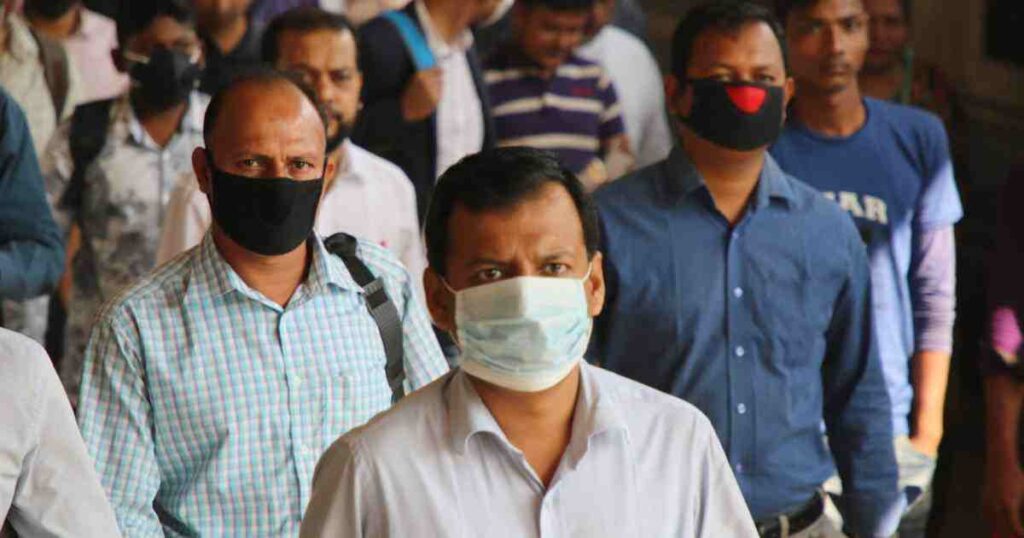The government has taken a page out of China’s book and announced a heavy restriction on the movement of people but fell short of calling it a ‘lockdown’ to prevent further transmission of coronavirus hours after recording the highest number of cases and fatalities on Thursday.
“The whole of Bangladesh is declared as ‘vulnerable-to-infection’ zone under the Infectious Diseases (Prevention, Control and Elimination) Act 2018,” the Directorate General of Health Services (DGHS) said in a circular in the evening.
It urged the people of infected areas to strictly follow its directives about maintaining social distancing and staying indoors.
Government figures showed coronavirus affecting 44 districts out of 64. Dhaka, the capital city, recorded the maximum number of cases, 608, followed by Narayanganj with 255 confirmed cases.
“People must stay at home to curb the transmission of coronavirus. No one must go out of home without extremely emergency needs,” the circular says.
“The movement of people from one area to another is hereby strictly controlled,” the DGHS said. “No one will be allowed to go out of home between 6pm and 6am.”
It warned of ‘stern actions’ against the violators of the order.
Bangladesh on Thursday reported 10 fatalities in the span of 24 hours, the highest since the first case was reported on March 8. So far, 60 people have died of coronavirus.
“We’ve collected the highest number of samples in the past 24 hours…a total of 341 people have tested positive, taking the number of confirmed cases to 1,572,” DGHS Additional Director Dr Nasima Sultana told a regular briefing.
The government announced a general holiday starting March 26 and later extended it to April 25, shutting down transports and all non-essential services, putting millions out of job.Prime Minister Sheikh Hasina unveiled a number of stimulus packages to tackle the possible effect of the outbreak and announced giving ration cards to five million people, 10 million in total.




